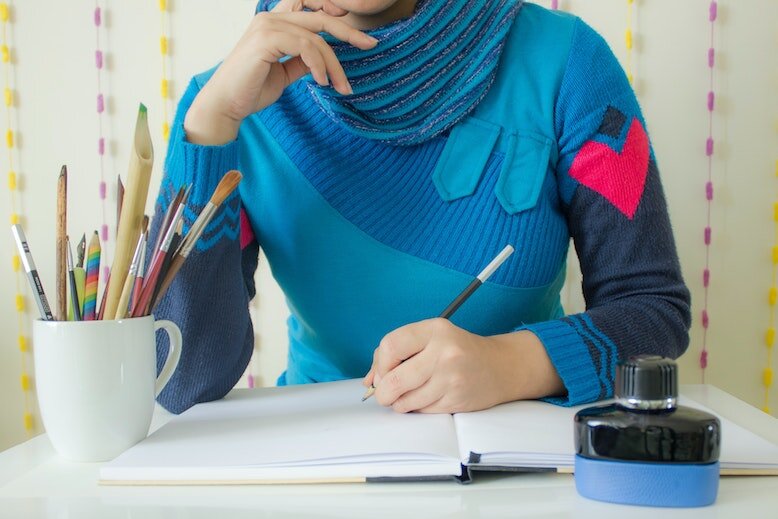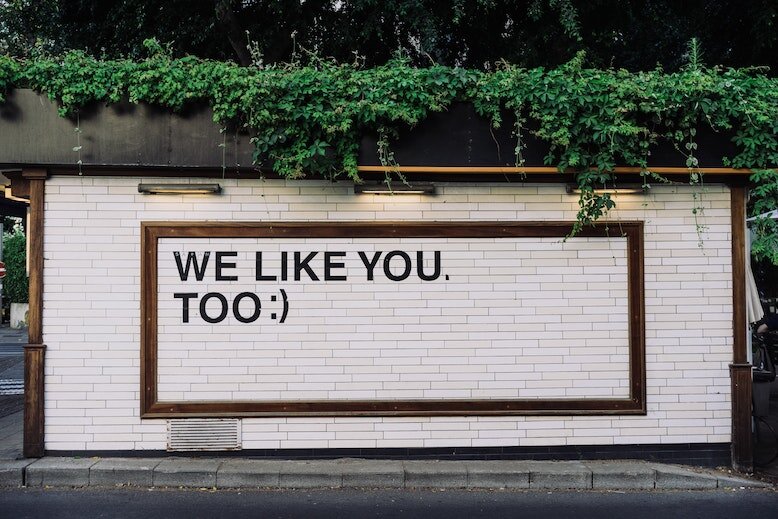Instagram use itself doesn’t lead to envy and self-esteem issues, but the moment you compare yourself to someone online, that’s when envy starts to creep in, according to a 2020 research in Singapore. But let’s be real: while using Instagram alone won’t turn you into a green-eyed monster, it’s still extremely hard to not covet someone else’s luck on a platform where everyone is showing off their assets.
Most of us have felt this familiar pang of pain when we see someone post about their beach vacation while we’re still stuck at home or when an old college friend posts about their promotion while you feel like your career is going nowhere. We know it’s a bad habit, but we can’t help but feel a mix of resentment and self-pity anyway. So are we doomed? Not really. Here are ways you can deal with Instagram envy when it feels like everyone’s living a perfect life.
Reframe your envy

(Photo from: Hadis Malekie via Unsplash)
It may surprise you but feelings of envy aren't always a bad thing, they can sometimes be useful. Clinical Psychologist Dr. Annabelle Chow explains that there is a tendency for us to focus on “negative stimuli”. This is called the “negativity bias.” One way to avoid falling prey to this is “to reinterpret negative events in a more positive light, such as by shifting our focus to the takeaways that we can learn from any given event.” This concept can be applied to envy triggered by social media platforms. “Rather than focusing on the negative emotions, we can focus on channelling our envy into motivation to work harder to achieve better outcomes. In other words, we turn social media envy into fuel that inspires us rather than sapping us,” she said.
This is especially helpful for those of us who are still finding our footing in life and unsure of what to do next. What we covet from others reveals some of the things that we may unconsciously desire. By examining what we envy, it can point us in the direction of what we truly want to achieve in life.
Practise active social media use
The use of Instagram, or any other social media for that matter, isn’t supposed to be passive. And yet, terms like “mindless scrolling” and “doom scrolling” (an endless digital consumption of bad news) have taken root in our modern vernacular. Unfortunately, this habit is associated with “negative affect, like envy or sadness”, says Dr. Chow.

(Photo from: Adam Jang via Unsplash)
Indeed, in a 2018 study of adults aged 18-49 in the United States, passive social media use was found to have a connection with depressive symptoms while active social media use showed no significant association. It’s really time to turn off lurker mode and start engaging. “When we engage with social media actively by commenting and reacting in a manner by celebrating the highs together and supporting them through the lows, we learn to revel in our own lives by helping others celebrate theirs. To do this, try to take a genuine interest in other people and their activities and lives,” Dr. Chow said.
Share authentically
Almost everyone on social media wants to present their best selves and the highlight reel of their lives — including you (and me). Yup, it’s likely that you also inspire social media envy. We don’t really want to admit that the pretty cake we posted about is actually kind of dry and wish we didn’t spend too much on it. Or that the vacation we had was actually not as enjoyable as we make it to be on Instagram. We definitely need to examine how we contribute to this cycle of envy and strive to break the cycle.

(Photo from: Charles Chen via Unsplash)
How to start? Dr. Chow advised us to share the whole picture. “Many of us are aware of the toll that social media can take on our well-being when we are continuously exposed to opportunities for comparisons. To tackle this, along with sharing our accomplishments and highs, it is worth taking the first step in sharing our disappointments and pain as well to remind one another that whatever we envy is just one slice of a much larger and more complicated picture,” she said.
This is extra meaningful when we realise that it’s our peers who are most likely to inspire envy in us and vice versa. “Envy is typically directed at people whom we perceive as being socially close to us. This phenomenon is considerably increased through social media. We feel the differences of those whom we perceive as superior more keenly when they are perceived as ‘closer’ to us as compared to those who are more ‘distant’ to us,” explained Dr. Chow. By breaking the cycle, we are essentially helping create a more supportive, authentic community.
See it as an opportunity for social critique
The reason why envy exists is because not everyone has the same opportunities. Some just have more than others and, in some cases, social media can inspire a meaningful discourse about why this is so. We can already see it from the trend of video essay analyses of social media phenomenon. There’s the “normalisation of luxury fashion” among young adults on Instagram and the toxic beauty standards perpetuated by social media.
“When confronted with facts about inequality, people might find themselves experiencing strong feelings against those with more. Now, upon feeling such strong feelings, a person might be moved to reflect upon these feelings. Why is it that I feel such rancor towards those with more? Is this justified? Not satisfied with simply living with his feelings and labeling them as justified, this person tries to answer by searching for good reasons to think the offensive inequality is unjust,” Political Theorist Harrison Frye says in a 2016 journal article.
We need to rise above our initial feelings of envy and resentment and really think if our envy is a symptom of a larger issue and how we can tackle it.
Practise gratitude journaling
At the end of the day, we have to live with what we have, do the best we can with it and be thankful for it. Gratitude is the ultimate antidote to envy. “It’s easy to focus on comparisons and the things that you do not have, and to forget about what you have. One way to overcome this is to keep a gratitude journal,” Dr. Chow said. “Research has demonstrated that gratitude journaling can induce positive mood, promote psychological well-being, and generally tend to feel better about their lives. It also can protect against anxiety and depression.”

(Photo from: Gabrielle Henderson via Unsplash)
Through gratitude journaling we become more “attuned of the little blessings in life”. Dr. Chow suggests to start listing three to five things each day that you’re grateful for to uplift your spirits before going to sleep and closing the day.
Dealing with feelings of envy is a journey on its own. Don’t expect them to go away in just a few weeks. You have to constantly practise reframing your perspective. It’s not easy but it’s definitely worth doing.
(Cover photo from: Plann via Unsplash)
Next, learn how to effectively address online negativity.
Comments, questions or feedback? Email us at [email protected].





.png)


